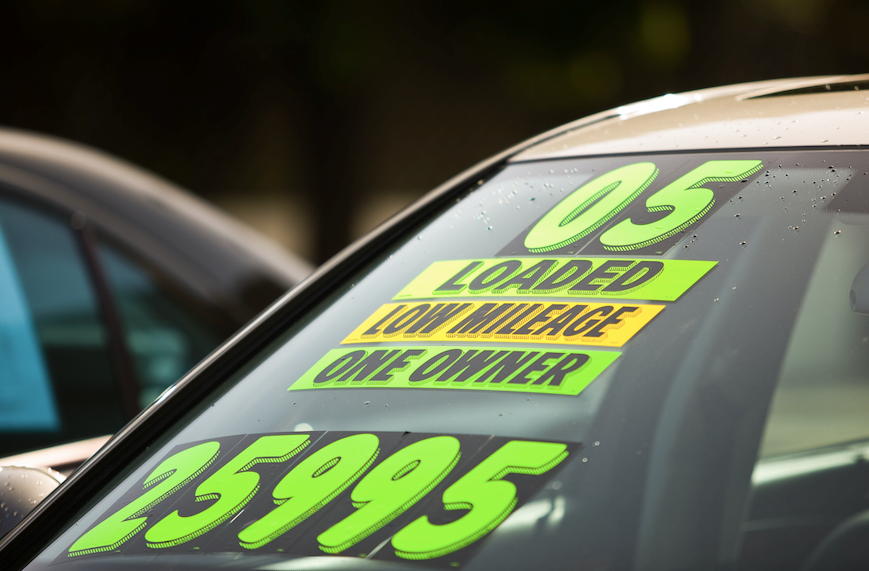Buying a car from a dealership can be overwhelming at times.
With so many things to consider, such as financing options, the best vehicle to fit your lifestyle, and a variety of technical features, it begs the question: "Where do you even begin?"
BBB serving Mainland BC and Yukon are reminding consumers that choosing a car can be hassle-free, if you keep certain things in mind before you make such a big-ticket purchase.
Unfortunately, that wasn't the case for one Vancouver man earlier this year.
Vancouver example
In March 2023, Vancouver resident Simon Underhill bought a used car from a dealership that appeared to be in good condition. But six weeks later, the car began making unusual noises while driving on the highway. After taking his car to a shop, the Vancouver man found that the wheel rims were the incorrect size. The noise only became noticeable at high speeds, so the man hadn’t noticed it on his test drive. Having incorrect wheel rims can negatively impact the vehicle's handling, traction, and fuel efficiency. Additionally, it can also cause damage to the vehicle's steering. After contacting the dealership, the owners denied anything wrong with the vehicle at the point of purchase and refused to cover and repair fees or refund the vehicle, even though he was in the midst of financing his car. At his wits end, he submitted a BBB Scam Tracker report and also reached out to Vehicle Sales Authority of BC (VSA). The VSA acted as an intermediary for Underhill and the dealer offered to fix the problems, free of charge. It turns out there were more problems with the vehicle, including a power steering fluid leak. "If I could go back in time, I would tell my former self not to buy the car," said Simon Underhill. "If anything looks slightly funny, just walk."
"Whenever you’re making a big purchase, it's so important to ensure you’ve reviewed every detail of the contract," says Aaron Guillen, Media and Communications Specialist with BBB serving Mainland BC & Yukon. "Who is responsible for repairs, should any arise in the first few months? Will the dealership replace your car if your purchase turns out to be a lemon? These are the questions you need to be asking before you walk off the lot."
Five ways to protect your grandparents
Work with trustworthy businesses
- The best way to avoid losing money during hard economic times is by making sure you're doing your research before you make your purchase. BBB.org is a vital resource to ensure you find the Sign of a Better Business and avoid falling for scams, fraud, and unprofessional business owners.
Set a budget
- You will want to factor in monthly expenses that come with owning a car, including insurance payments, fuel, parking, and routine maintenance and repairs. A clearly defined budget will make choosing a vehicle, negotiating with a dealer, and getting a loan much easier. Do you need a large vehicle for a big family? Do you spend a lot of time on the road and want good fuel economy? The answers to these questions will help you narrow down the makes and models as you search for a vehicle that fits your needs.
Prequalify for a loan
- Prequalifying for a loan gives you a few advantages when approaching a dealer to make a purchase. First, you can set a reasonable price range that fits your budget. Second, when approaching a dealer with a pre-approved loan, you give them a price limit that they will have to meet to make a sale, which can save you money. Of course, most car dealers offer their own in-house financing for consumers, but you can often get lower interest rates on loans from your bank or credit union.
Test drive the vehicle
- You should always take a test drive before you sign the final paperwork. There is no substitute for seeing a car in person, looking under the hood, sitting in the driver’s seat, and making sure the engine runs smoothly.
Buying a used vehicle? Get a vehicle history report
- Get the VIN (vehicle identification number) from the seller in order to run a report from ICBC, CARFAX Canada, or another online service for the car you’re interested in. The report will provide important information about the car such as accident history, outstanding liens, odometer reading and service records. It will also give you insight into the registration and branding history.
Get everything on paper in a contract
- Be sure to specify details, such as: the final price, payment schedule, all services that are included, and any handshake agreements made. If the vehicle turns out to be a lemon and breaks down, do you have any reassurance that you’ll get a replacement? Is there a cooling off period if you change your mind?
Don't give in to pressure
- With most dealerships, prepare to come into contact with high-pressure salespeople and feel like you should make a down payment before you have time to think about the purchase. Take 5, whether that’s five hours or five days. Take your time and think a deal over before agreeing to anything. If you get a bad feeling, listen to your gut



